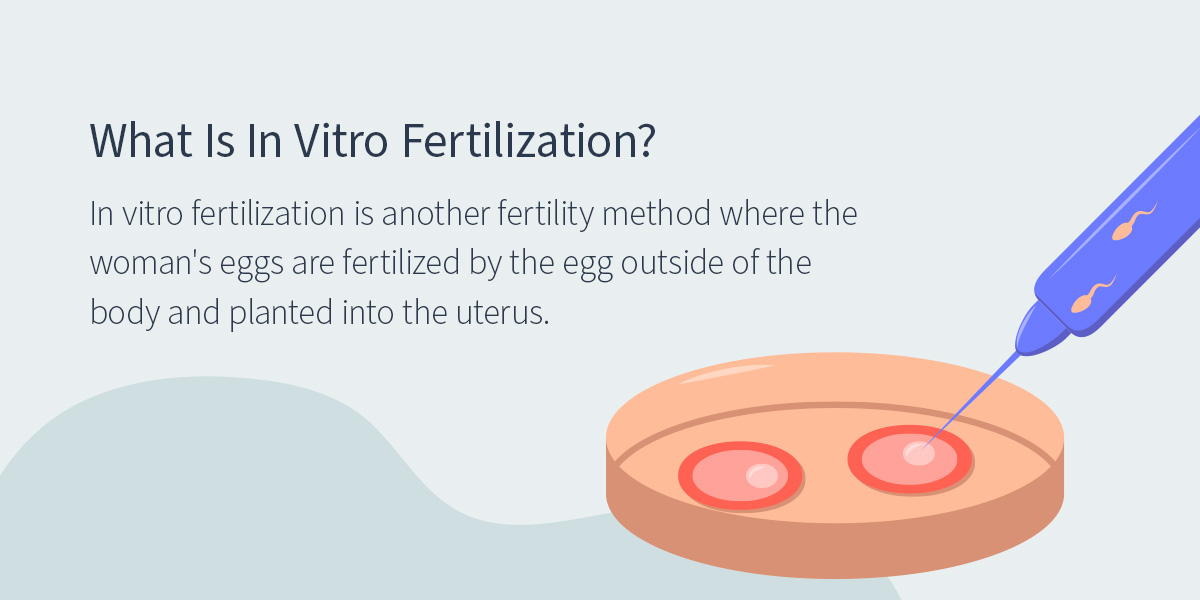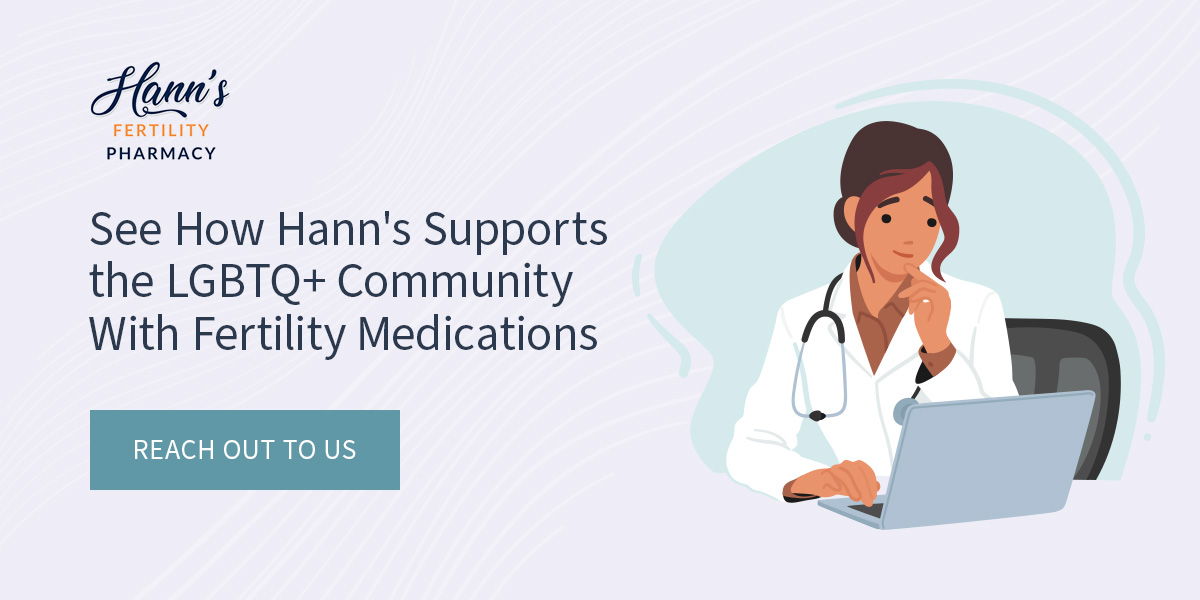Families come in all shapes and sizes. As a lesbian, gay, bisexual, transgender or other member of the LGBTQ+ community, you have options for growing your family. When you and your partner decide to start a family, you might feel overwhelmed by all the information you find. Addressing fertility concerns, diagnostic testing and financial options can understandably be stressful.
Before making a decision or meeting with your doctor, you might want to learn a bit more about fertility medication and treatment options. Understanding your options ahead of time can help reduce stress and make you feel more prepared on your journey. We’ll walk you through the main types of treatment for LGBTQ+ family building.
Fertility Options for Same-Sex Couples
No matter your family dynamic, you can explore several avenues to parenthood. Here are the most common fertility treatment options for LGBTQ+ individuals.
What Is Intrauterine Insemination?
Intrauterine insemination, or IUI, is a method in which the donor’s sperm is placed into the uterus. A doctor places the sperm via a small catheter that passes through the carrier’s cervix. The sperm used for IUI is “washed” or cleaned and concentrated before insertion. IUI gives sperm a better chance at fertilizing the egg because they are free of debris and clean of non-moving sperm, meaning they are much healthier. This procedure helps treat infertility by placing the sperm during the time that the ovary releases eggs to improve the chances of fertilization.
This process is also referred to as artificial insemination to achieve pregnancy. IUI can be coordinated with the carrier’s menstrual cycle and fertility medications to improve chances. The procedure takes about 20 minutes to complete, and the couple may take an at-home pregnancy test to check for results in about two weeks.
IUI is a less invasive method of fertility treatment and is generally less expensive. LGBTQ+ couples might choose this method due to infertility, a need for donor sperm, endometriosis-related infertility or male infertility.
What Is In Vitro Fertilization?

Commonly known as IVF, In vitro fertilization is another fertility method where the woman’s eggs are fertilized by the egg outside of the body and planted into the uterus. This process is more complex because it requires several procedures over the course of a few weeks.
IVF can also be a successful option when one’s egg count is too low or when age is a concern for IUI success. Couples using IVF choose the sperm donor, who will donate the egg and who will be the gestational carrier.
Some LGBTQ+ couples decide to have one partner provide the egg while the other carries the pregnancy. Others decide to have one partner undergo the entire IVF treatment and use donor sperm. If both partners wish to be involved in the treatment, it may take longer, as both individuals need to undergo tests and procedures and take fertility medication.
The egg donor will go through an egg retrieval procedure, and the donor sperm will then inseminate. Once the egg is fertilized and the embryo has matured, it will be transferred back to the woman’s uterus or to her partner’s uterus. Gay couples can also utilize IVF using an egg donor and surrogate.
In this process, one or both partners donate sperm to fertilize the donor’s egg. The surrogate will also receive fertility medication options and undergo a frozen embryo transfer. Couples who choose IVF may also have to undergo several screenings, including:
- Semen analysis
- Infectious disease screening
- Uterine exam
- A mock embryo transfer
Selecting a Sperm Donor
The first decision you should make as a couple is if you want to partner with a known or unknown donor. You can choose an anonymous donor or learn more about them. Having a known donor means you might have access to photos, a personality test, family history and other general information about the person.
You will also need to choose whether your donor will have a possibility for future contact with your child, similar to an open adoption.
Before you decide on a donor, your doctor will recommend that the individual undergo a sperm analysis to reveal the health and viability of their sperm. Your sperm donor may also have to undergo a blood test and detailed health checkup to minimize potential risk. Aside from the essentials, some couples want to consider their donor’s hair color, eye color, height or ethnicity.
Selecting an Egg Donor
Age is one of the top factors that usually influence an LGBTQ+ couple’s choice of egg donor. Finding a donor between the ages of 21 and 30 is generally recommended. As with a sperm donor, you might also want to consider physical characteristics, family medical history, personality characteristics and ethnic background. However, those factors are entirely up to you and your partner’s wishes. You can also choose from an anonymous or known egg donor. In some cases, you might even choose a family member or close friend.
The most important aspect to consider when selecting an egg donor is the donor’s health. Donors who have previously completed a donor cycle with positive results or have had a child already may increase the chance of success.
Surrogacy
One popular LGBTQ+ fertility option is surrogacy. Both gay couples and lesbian couples can use this treatment method. There are two types of surrogates. A gestational carrier is a woman who carries a pregnancy for another couple without any biological link to the child they carry. A traditional surrogate is a woman who contributes her own egg and carries the pregnancy. A gestational carrier is the more common of the two options.
Gay couples can use a gestational surrogate by donating one or both partner’s sperm to create an embryo with the egg donor. The mature embryos are implanted in the surrogate using IVF methods. Lesbian couples can also use a surrogate for several reasons, including:
- Age
- Life or medical situations that could be affected by pregnancy
- Medication complications
- Infertility
- Hysterectomy or born without a uterus
See How Hann’s Supports the LGBTQ+ Community With Fertility Medications
Growing your family is an important, emotional decision. As an LGBTQ+ couple, you deserve access to treatment options and medication that improves your chances of having a baby. At Hann’s Pharmacy, we care about your fertility needs. We’re committed to helping the LGBTQ+ community on the journey to parenthood, however it looks for you.
We offer a variety of fertility medications, guides, pharmacists and consults to give you personalized care for your pregnancy journey. We want to make fertility as stress-free as possible, which is why we also offer convenient shipping. Learn more about our fertility medications today, or reach out to us for a consultation.


